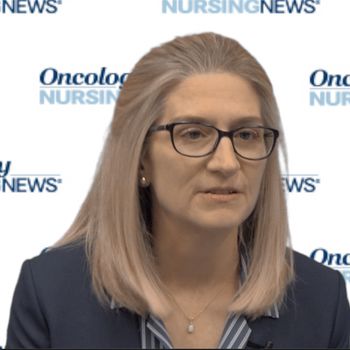
The ACCC created the Immuno-Oncology Institute to help community practices address up-and-coming questions around immunotherapy implementation.

The ACCC created the Immuno-Oncology Institute to help community practices address up-and-coming questions around immunotherapy implementation.

The treatment landscape for mantle cell lymphoma (MCL) is rapidly evolving, though patients with relapsed/refractory disease tend to still have poorer outcomes than others; however, hope may be on the horizon, according to Luhua (Michael) Wang, MD.
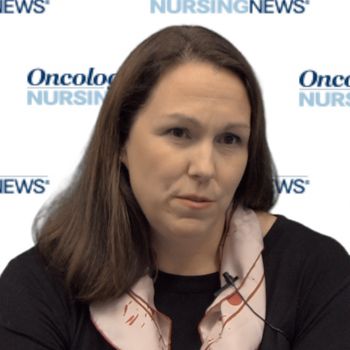
After being treated for breast cancer, nurse practitioners at MSK help survivors transition back to their primary care physicians.

Breast cancer regimens can cause long-term cardiac toxicity in survivors. One trial is delving into why this is the case.

A recent study found that oncology nurses can play a key role in promoting the safety of oral anti-cancer medication, while freeing up time for oncologists, too.

Investigators improved the rate of patients being screened to over 68% for distress and supportive care needs by using a patient-reported tool.

Patients can track symptoms and anonymously send them to glioblastoma researchers around the world.

Implementation of a referral tool designed to enhance family history screening during doctor’s visits may play a crucial role in identifying those at risk for cancer.

An easy-to-implement nurse-driven program can decrease the number of hospital readmissions, lowering costs and improving patient satisfaction.
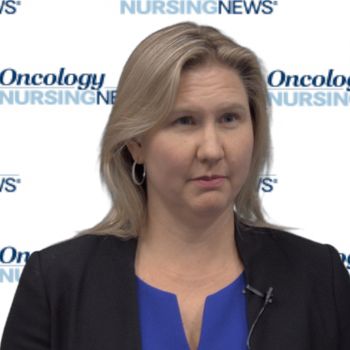
Patients with lung cancer often report feelings of stigma, and different approaches to care than in other cancer settings.

Venetoclax (Venclexta) to obinutuzumab (Gazyva) reduced the risk for disease worsening or death

Broader clinical trial criteria could nearly double the number of patients with advanced non-small cell lung cancer who are eligible to participate.
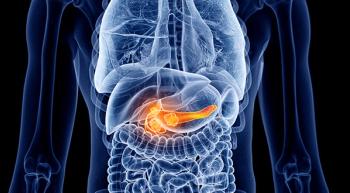
Maintenance therapy with olaparib (Lynparza) significantly improved progression-free survival (PFS) compared with placebo among patients with germline BRCA-mutated metastatic pancreatic cancer, according to results from the phase III POLO trial presented at the 2019 ASCO Annual Meeting.

Administering chemotherapy to a pregnant woman can be risky, but current guidelines about pregnancy testing are shaky.

Certain populations are less likely to receive treatment for breast cancer. Nurses should lead a multidisciplinary team to improve that.

According to the MATCH trial, about a quarter of pediatric patients with cancer were able to be screened for targetable alterations in their tumor and directed to a treatment targeting that alteration.

The addition of heated chemotherapy delivered to the abdomen during surgery delivered no survival benefit to patients with peritoneal carcinomatosis, according to phase III study results presented at the 2018 ASCO Annual Meeting.

Troubling statistics indicate that women who have head and neck cancer have worse out comes than their male counterparts.

Adding nelarabine to escalating-dose methotrexate increased the 4-year disease-free survival rate to 91% in pediatric and young adult patients with newly diagnosed T-cell acute lymphoblastic leukemia or T-cell lymphoblastic lymphoma, according to results from the phase III AALL0434 trial.
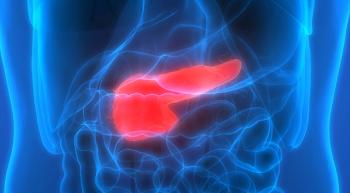
In a major advance that set a new standard of care for the treatment of patients with resected pancreatic cancer, a modified FOLFIRINOX regimen (mFOLFIRINOX) dramatically improved survival compared with standard gemcitabine as postoperative therapy.
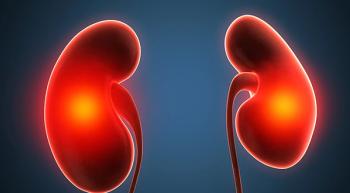
Sunitinib (monotherapy appeared noninferior to cytoreductive nephrectomy and adjuvant sunitinib, the current standard of care for patients with synchronous metastatic renal cell carcinoma, according to results from a phase III study presented at the 2018 ASCO Annual Meeting.

Nurses may be able to help facilitate discussions between patients and physicians to give both parties a better understanding of each other’s goals and ultimately lead to better care.

Patients with relapsed/refractory heavily pretreated multiple myeloma could live for an extra progression-free year with the use of the anti-BCMA CAR T-cell therapy bb2121.

Adolescent and young adult survivors of cancer require special care, according to a study presented at the American Society of Clinical Oncology’s 2018 Annual Meeting.

A promising CD19-directed chimeric antigen (CAR) T-cell therapy, Lisocabtagene maraleucel (JCAR017; liso-cel), may result in durable remissions among patients with high-risk diffuse large B-cell lymphoma (DLBCL), the most common type of non-Hodgkin lymphoma.

Patients with relapsed/refractory heavily pretreated multiple myeloma could live for an extra progression-free year with the use of the anti-BCMA CAR T-cell therapy bb2121.

Next-generation sequencing (NGS) in metastatic non–small cell lung cancer (NSCLC) can save Center for Medicare and Medicaid Services (CMS) payers $1.4 million to $2.1 million.

Patients with head and neck cancer (HNC) who tracked their symptoms using the CYCORE (CYberinfrastructure for COmparative Effectiveness REsearch) system’s mobile and sensor technology experienced reduced symptom severity compared with those who received standard care, according to results of a large randomized trial.

Nausea and vomiting associated with anticancer therapies continue to be among patients' most troubling symptoms. Findings of a clinical trial found that olanzapine demonstrated comparative benefits in relieving these symptoms.